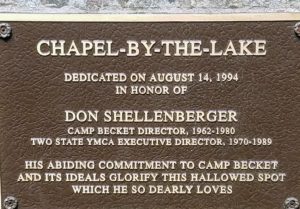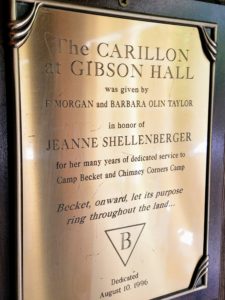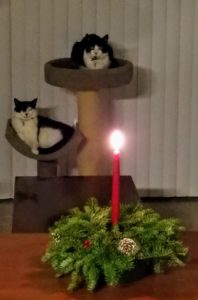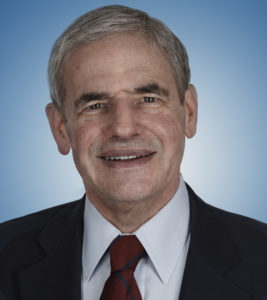“And a time to heal.”
— Ecclesiastes 3:3
The night the police arrested the first two suspects was one of the best nights of my life. The day in Charlottesville, seeing justice done, was one of the best days.
Not every crime is solved. Not every criminal is caught. Not every prosecution is successful. And not every sentence is adequate.
The police, FBI, and prosecutors performed with excellence. I will always be grateful, and the community is safer with the criminals locked up. And the fact that the authorities stood together at the media conference and sent a message that violent crime will not be tolerated was a warning that should be heeded.
Anarchism
I remain a philosophical anarchist. My views have evolved over my lifetime, and they are firm.
Anarchy means “no ruler.” I believe no one is fit to rule us. I encourage a vision of liberty — freedom from government. The crime has cost me, but my principles are intact.
And I live here in the real world, a world not of my making. I like, respect, and am grateful to all the individuals who worked to bring the criminals to justice, and those who assisted me. I also liked and respected all the Assistant U.S. Attorneys and FBI Special Agents to whom I made referrals of white collar crimes over the years.
Nonetheless, as an anarchist, I advocate a world where all services, including security and dispute resolution, are provided privately. In this world, the people I encountered in the case would all thrive, given their excellence.
I will discuss freedom and security more in Part X.
Failures
The state criminal justice system failed, leaving those of us in the community vulnerable to violent criminals. I lived, but I very well could have died. Others too faced the threat of death. The media also failed in reporting on crimes, dispositions, and issues.
In Part III, “Restoration,” I explained that I had created a framework for coping with the crime. It included this:
If the crime had to happen, it was better that it happened to me. I was able to remain calm. I was able to remember details. I had long experience helping the authorities bring criminals to justice. Most importantly, I was able to endure the stress and the violence; others might have died.
However, as I noted in Part V, “Home,” “the crime did not have to happen.” The reason for this is that the system could have secured at least two of the three criminals who committed the crimes against me.
Jones
My presentation at the sentencing hearing, covered in Part VI, “Let Justice Be Done,” included the following:
I invite the community of central Virginia to consider whether lessons can be learned from the fact that Defendant Jones received a suspended sentence and probation for a felony, through the state system, two months before the series of crimes for which he has pleaded guilty.
An article published November 6, 2015, reported on the crime I mentioned. Here is an excerpt:
Man Arrested in Connection with Charlottesville Robbery
Eighteen-year-old Kentavia Tyree Jones was arrested Thursday and charged with robbery.
The incident happened early in the morning of Oct. 18 on the 200 block of 14th Street SW.
Police say the victim, who was walking and texting on his cell phone, was stopped by a group that began talking to him.
One of the men in the group, a black man wearing a green shirt, pulled the victim from behind and disorientated him by hitting him in the ears and head.
A second black man in a white track suit then took the victim’s phone.
The online records of the Charlottesville City Court — Criminal Division reflect that Jones was indicted and pleaded guilty to a felony charge of grand larceny. On April 19, 2016, the court sentenced him to a sentence of seven years imprisonment, with six years and nine months of the sentence suspended, plus supervised probation for three years. Jones apparently was credited with time served in jail or other credit.
On June 9, 2016, Jones and others began the series of robberies that ended with the crimes against me. The U.S. Attorney’s office’s media release of October 3, 2016, announcing the indictment, details the crimes. Jones ultimately admitted participating in the June 9th robbery, two more robberies, and the crimes against me, as described in the office’s release of January 13, 2017.
Let us review the chronology:
October 18, 2015: Jones commits larceny in the 14th Street SW incident.
April 19, 2016: The city court sentences him, with supervised probation.
June 9, 2016: Jones begins the crime spree.
And there is more. Before the April sentencing, on March 18, 2016, the Charlottesville police arrested Jones for an alleged assault in an incident on March 5. Here is an excerpt from the news report:
Four More Charged with Assault in Connection with Previous Crime
[Three others] and Kentavia Jones from Orange face assault by mob charges. Jones is also charged with felony assault.
Police say they were involved in a fight at a home on Vine Street back on March 5 where a man was stabbed [by a woman] with a pair of scissors.
The online records of the Charlottesville General District Court reflect that Jones was charged with three crimes:
§ 18.2-42. Assault or battery by mob;
§ 18.2-51. Shooting, stabbing, etc., with intent to maim, kill, etc. (“principle 2nd degree”); and
§ 18.2-91. Entering dwelling house, etc., with intent to commit larceny, assault and battery or other felony.
The records state that the case was finalized on May 26, 2016. The disposition was nolle prosequi, meaning the state determined not to prosecute the matter.
Let us add the case to the chronology:
October 18, 2015: Jones commits larceny in the 14th Street SW incident.
March 5, 2016: Jones allegedly commits crimes in the Vine Street incident.
March 18, 2016: Jones is arrested for alleged Vine Street crimes.
April 19, 2016: The city court sentences Jones for the 14th Street SW crime, with supervised probation.
May 26, 2016: The state declines to prosecute Jones for the alleged Vine Street crimes.
June 9, 2016: Jones begins the crime spree.
Of course, regarding the Vine Street matter, neither an arrest nor a charge is proof of guilt. However, the case raises the question why prosecutors declined to pursue the prosecution.
And the handling of the 14th Street SW matter also raises questions:
• Why, as I implicitly asked at the sentencing hearing, did the system put Jones back on the street with mere supervised probation?
• What did the supervision entail?
• And why did the supervision apparently not include GPS monitoring, permitted under § 19.2-303?
The media failed to raise these questions regarding both matters. In fact,
• They never mentioned Jones’s arrest and prosecution for the 14th Street SW crime in reporting on the Vine Street arrest;
• They never reported on the disposition of either case;
• They never mentioned Jones’s state criminal record after he was arrested and federally prosecuted for the crime spree; and
• They never reported the fact that the state system had released Jones on probation two months before the crime spree began.
The media, in other words, failed to connect any dots, even those that could be found in seconds simply by Googling, and failed to follow up arrests with reports on sentencing. Moreover, in reporting on the sentencing hearing, they declined even to mention the question I raised: whether lessons can be learned from the system’s release of Jones.
Johnson
From Part VI, “Let Justice Be Done,”
The AUSAs, in their argument concerning sentencing, noted that Johnson had absconded from a juvenile detention facility at the time of the crime. (He had reached the age of majority, 18, by the date of the crime.) The AUSAs also pointed out that, as a juvenile, he had threatened an off-duty police officer with a gun.
These facts too raise questions:
• Why was Johnson in an apparently insecure facility, given his record?
• When and how did he escape from the facility?
• Why was the public not alerted to the escape?
The media failed not only to raise the obvious questions but also even to report on the disturbing facts disclosed in court.
Three criminals participated in the crimes against me. The state system had the chance to secure at least two of them, and it failed to do so.
Steppe
The state system also failed to secure Demetrius Steppe, who was later indicted for participating in the first three robberies in the spree.
He pleaded guilty and was sentenced to 15 years in prison. See the U.S. Attorney’s office’s release of July 28, 2017, “Fifth Defendant Sentenced for Violent Crime Spree Last Summer.”
(The release refers to the first robbery as having taken place June 8, but the indictment and prior reporting refer to it as having occurred on June 9. See, e.g., the release on Tyree’s guilty plea, which refers to “the early morning hours of June 9.”)
According to a release by the Greene County Sheriff’s Office published October 5, 2015, Steppe, was one of two people arrested in connection with a burglary of a store in Ruckersville on August 16, 2015. See “Ruckersville Store Burglary Suspects Arrested, Charged.”
The online records of the Greene County Circuit Court — Criminal Division reflect that Steppe was indicted on December 7, 2015, for three felonies related to the burglary. (One charge was later amended.)
In an apparent plea bargain, Steppe pleaded guilty to the three charges on April 18, 2016. The prosecutors dropped one charge, larceny of a firearm. The court sentenced Steppe to three years imprisonment, suspended, on one of the remaining charges, with three years of supervised probation. On the other charge, it sentenced Steppe to six years imprisonment, with five and a half years suspended, and three years of supervised probation. Like Jones, Steppe apparently was credited with time served in jail or other credit.
Here is the chronology:
August 16, 2015: Steppe commits the burglary.
April 18, 2016: The city court sentences him, with supervised probation.
June 9, 2016: Steppe begins the crime spree.
The disposition of the case against Steppe raises the same questions raised by the first case against Jones:
• Why did the system put Steppe back on the street with mere supervised probation?
• What did the supervision entail?
• And why did the supervision apparently not include GPS monitoring, permitted under § 19.2-303?
Again, the media failed to raise these questions. And again:
• They never reported on the disposition of the state case;
• They never mentioned Steppe’s state criminal record after he was arrested and federally prosecuted for the crime spree; and
• They never reported the fact that the state system had released Steppe on probation two months before the crime spree began.
Lessons
The system’s failure to protect society from at least one-half of the criminals in the spree, Jones, Johnson, and Steppe, when it could have done so, offers lessons, as does the failure of the media.
I will discuss my views in Part X. In the meantime, consider whether a victim of the crime spree should have to be the one to do the kind of reporting I have done above.
Summer
July
I make two day-trips to Camp Becket.
On Gibson Weekend, when parents visit their children, I see the two families I have referred to the camps; the children are thriving. I show the families the plaque in the chapel honoring my father. I chat with the staff.
Two weeks later, I attend the annual meeting. I see old friends and again speak with the staff. I show friends the plaque in Gibson Hall honoring my mother.
August
Writing the article is draining. I write, edit and rewrite, reliving the crime over and over. I have a nightmare about the crime for the first time.
I can only bear to work on the article an hour a day. But I have the story to tell and some things to say.
……..
I attend an astronomy event at New Pond Farm in Redding. I think it is the first time I have looked through a telescope in more than half a century.
The volunteers help us use the telescopes to view Saturn, with its rings; Jupiter, with its “stripes and swirls”; and the moon, with its craters, all as promised. We also view Albeiro, a double star; Vega, a “beautiful blue-white star”; and the Andromeda Galaxy, 2.3 million light-years away.
I am in awe.
September
Crisp, calm days; soft, fading light.
I visit Camp Becket again for a few hours on Alumni Weekend. I see more old friends and again chat with the staff.
Six years earlier, I drove my mother from her home on Cape Cod to the camps. The Becket-Chimney Corners Alumni Association gave her an award for her service. She was thrilled by the program and honored by the award; it was her last trip to the camps.
Fall
October
The cats look out on the deck and watch leaves dance, their heads turning in tandem.
……..
The month is full of wonderful wildlife events.
I attend an introductory birding program at the Sharon Audubon Center, in northwestern Connecticut. We visit the raptor aviaries and then walk to find several species to view with our binoculars and to listen to their songs. One species is the white-crowned sparrow; listen to its sweet songs here.
I also attend the annual meeting of the Connecticut Audubon Society, held in Sherman. The program included a presentation on raptors.
And then I attend a program on Mexican gray wolves at Wolf Conservation Center. Learn more about the species here.
Finally, I attend an owl walk back in Sharon. We hear two barred owls. I had heard one in the distance earlier in the month as I walked on the trail at Huntington State Park in Redding. Learn about the species and hear its voice here.
November
Every day of sunshine, every day of warmth, is a gift. Out the window, across the street, a maple tree towers, its leaves fluttering in the sunlight. I dread the winter and cling to the light and warmth still left.
I again attend Atlas Network’s annual Liberty Forum and Freedom Dinner in New York City, seeing old friends, making new ones, introducing people to each other, offering ideas for creating a freer world.
I enjoy Thanksgiving with friends in upstate New York, happy to meet their family.
December
On a walk, I see red brick chimneys downtown glowing in the final afternoon sunlight.
The cycle that began when I returned home has begun again. I enjoy holiday parties and dinner with friends.
Peace
It is early December.
Victoria and Eve are with me in my office, side-by-side, serene.
I try to give them peace. But they have the gift of forgetting; I have the gift of remembering.
Out the window, up on the hill, in a neighbor’s yard, a glorious evergreen tree is decorated for Christmas, branches wrapped with blue, red, and green lights, a bright white star on top, the lights blurred in the mist.
A cousin sends me a centerpiece of balsam with a red candle. She writes that she wants me to light the candle and remember I am loved.
……..
It is Christmas Eve now. I am grateful for all of the kindness I have received from friends and relatives since the crime, the calls, cards, and messages.
Soon it will be spring, and the cold and darkness will be gone.
……..
I stayed alive, and I kept the cats alive.
And justice was done.
This is the end of the story.
But it is never over.
And that is fine.







